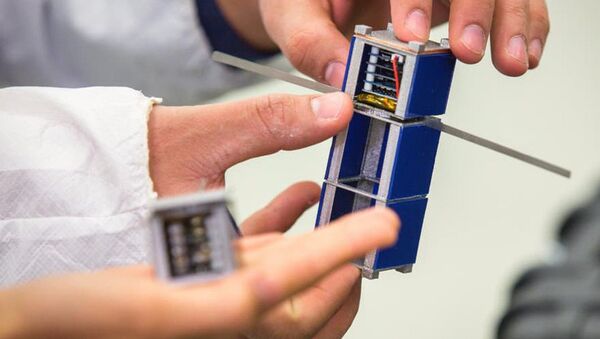Space engineers at Arizona State University (ASU) have just unveiled the "SunCube," a satellite weighing under 100 grams and measuring only 3 cm across. It features a camera, a computer system and other scientific instruments that make it fully suitable for space exploration.
The scientists, which have shown off their SunCube prototype in a video, have also published the plans for the tiny craft, encouraging people to design and launch their own into orbit.
Smaller satellites for hobbyists are not completely new: other diminutive crafts called "CubeSats" have been developed in the past with the aim of bringing space exploration to the masses. But even the cheapest among them are in fact, not cheap at all — putting together and launching a CubeSat will cost you tens to hundreds of thousands of dollars.
On the contrary, SunCube — which is available in its tiniest 3 cm version, and in a beefed-up 9 cm model — would be decidedly more affordable: its components cost some hundreds of dollars, and launching it to the International Space Station (ISS) would cost around $1,000. More ambitious launches beyond the ISS's perimeter are estimated at about $3,000, according to the researchers.

"By reducing the launch costs, it is hoped a wider community of educators, researchers and hobbyists can develop their own spacecraft."
The first SunCube prototype is scheduled to be launched next year.
If everything goes smoothly, this would not only enable thousands of enthusiasts to have a crack a close-up stargazing, but could also kick-off a novel way of carrying out space missions by unleashing hundreds of small satellites working together — a robotics concept known as "swarm technology," which the ASU team restyled as a "constellation of spacecraft."
"A 'constellation of spacecraft' [would have] many eyes in many places. A swarm of them could inspect damaged spacecraft from many angles, for example," the university's website suggested.




